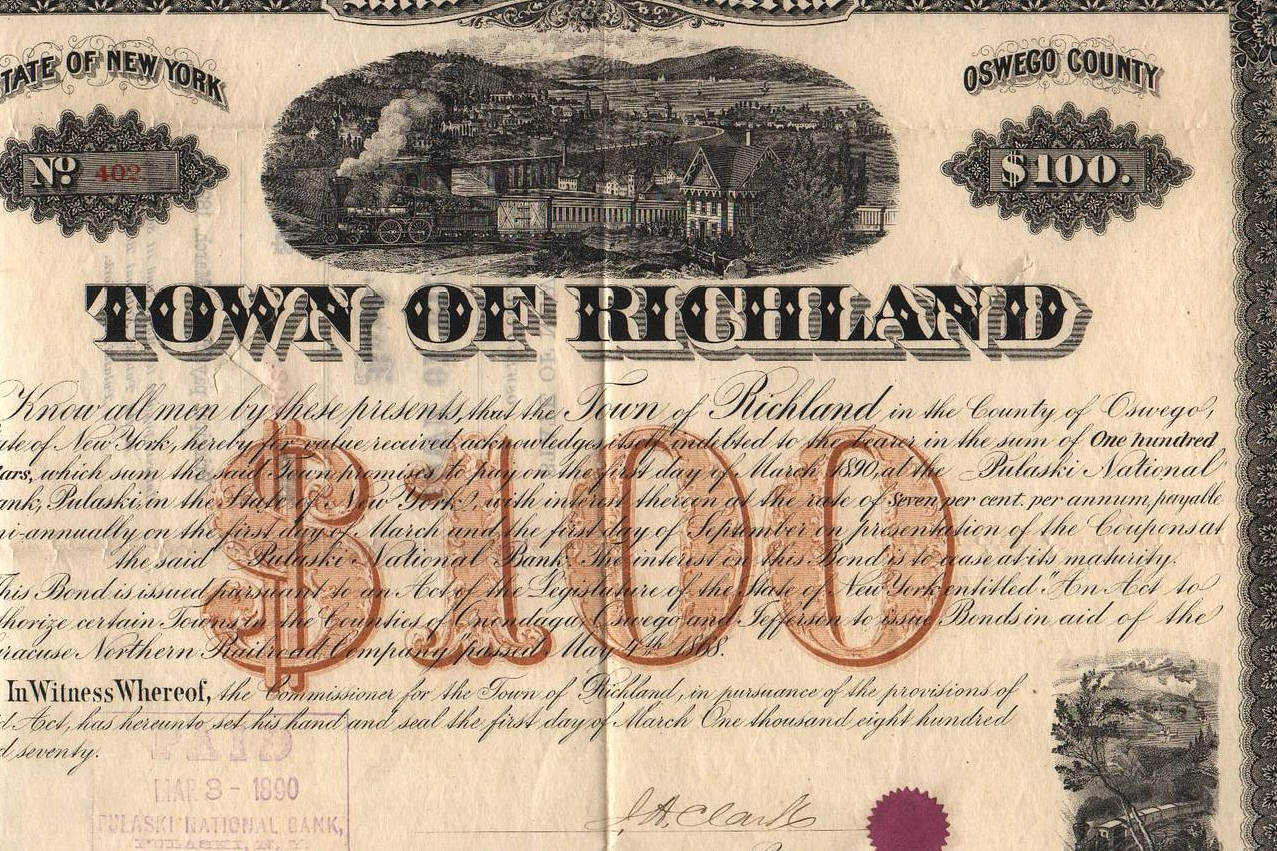BROWSE BY TOPIC
- Bad Brokers
- Compliance Concepts
- Investor Protection
- Investments - Unsuitable
- Investments - Strategies
- Investments - Private
- Features/Scandals
- Companies
- Technology/Internet
- Rules & Regulations
- Crimes
- Investments
- Bad Advisors
- Boiler Rooms
- Hirings/Transitions
- Terminations/Cost Cutting
- Regulators
- Wall Street News
- General News
- Donald Trump & Co.
- Lawsuits/Arbitrations
- Regulatory Sanctions
- Big Banks
- People
TRENDING TAGS
Stories of Interest
- Sarah ten Siethoff is New Associate Director of SEC Investment Management Rulemaking Office
- Catherine Keating Appointed CEO of BNY Mellon Wealth Management
- Credit Suisse to Pay $47Mn to Resolve DOJ Asia Probe
- SEC Chair Clayton Goes 'Hat in Hand' Before Congress on 2019 Budget Request
- SEC's Opening Remarks to the Elder Justice Coordinating Council
- Massachusetts Jury Convicts CA Attorney of Securities Fraud
- Deutsche Bank Says 3 Senior Investment Bankers to Leave Firm
- World’s Biggest Hedge Fund Reportedly ‘Bearish On Financial Assets’
- SEC Fines Constant Contact, Popular Email Marketer, for Overstating Subscriber Numbers
- SocGen Agrees to Pay $1.3 Billion to End Libya, Libor Probes
- Cryptocurrency Exchange Bitfinex Briefly Halts Trading After Cyber Attack
- SEC Names Valerie Szczepanik Senior Advisor for Digital Assets and Innovation
- SEC Modernizes Delivery of Fund Reports, Seeks Public Feedback on Improving Fund Disclosure
- NYSE Says SEC Plan to Limit Exchange Rebates Would Hurt Investors
- Deutsche Bank faces another challenge with Fed stress test
- Former JPMorgan Broker Files racial discrimination suit against company
- $3.3Mn Winning Bid for Lunch with Warren Buffett
- Julie Erhardt is SEC's New Acting Chief Risk Officer
- Chyhe Becker is SEC's New Acting Chief Economist, Acting Director of Economic and Risk Analysis Division
- Getting a Handle on Virtual Currencies - FINRA
ABOUT FINANCIALISH
We seek to provide information, insights and direction that may enable the Financial Community to effectively and efficiently operate in a regulatory risk-free environment by curating content from all over the web.
Stay Informed with the latest fanancialish news.
SUBSCRIBE FOR
NEWSLETTERS & ALERTS
Municipal Bonds - An Over-Reliance on the 'Honor System'
by Howard Haykin
However, ask an investor who just bought or sold a muni bond whether their broker-dealer gave the best price and charged a fair commission or transaction fee, and they're likely to say "they guess so, but they don't know for sure."
That's because there's no centralized market data for municipal bonds as there is for stocks, and because broker-dealers often transact with muni bond customers on a principal basis – i.e., they buy or sell muni bonds from their own inventory, and then apply a transaction fee in the form or a mark-up or mark-down to the trade price, rather than apply an openly-stated commission.
INVESTOR PROTECTION. Municipal bond investors are first and foremost protected by an 'honor system' that's largely based on the integrity of their broker-dealers. Absent this safeguad, it is likely that other safeguards may be irrelevant or insufficient to adequately protect investors.
That said, each broker-dealer relies on a set of internal controls (Written Supervisory Procedures, or WSPs) to ensure that brokers, traders and other personnel act responsibly and in compliance with industry rules and regulations, as well as firm policies. For WSPs to be effective, firms are expected to keep these documents updated for new rules and business practices.
Another safeguard is the oversight and enforcement provided by industry regulators. FINRA (Financial Industry Regulatory Authority) and MSRB (Municipal Securities Rulemaking Board) monitor their member firms (broker-dealers), largely by examining selected transactions for compliance. While those efforts are limited in scope and can only go so far, they did manage to catch one firm that didn't do best by its customers.
WHAT WENT WRONG. FINRA found that a reputable Chicago-based broker-dealer had failed to provide some of its customers with best prices on muni bond transactions. The firm erred by relying on a computer program to determine transaction prices, while ignoring executed prices of recent trades in those particular securities. That same broker-dealer was also cited for charging excessive mark-ups or mark-downs on some transactions.
[For further details, click on … FINRA Case #2017053470801.]





